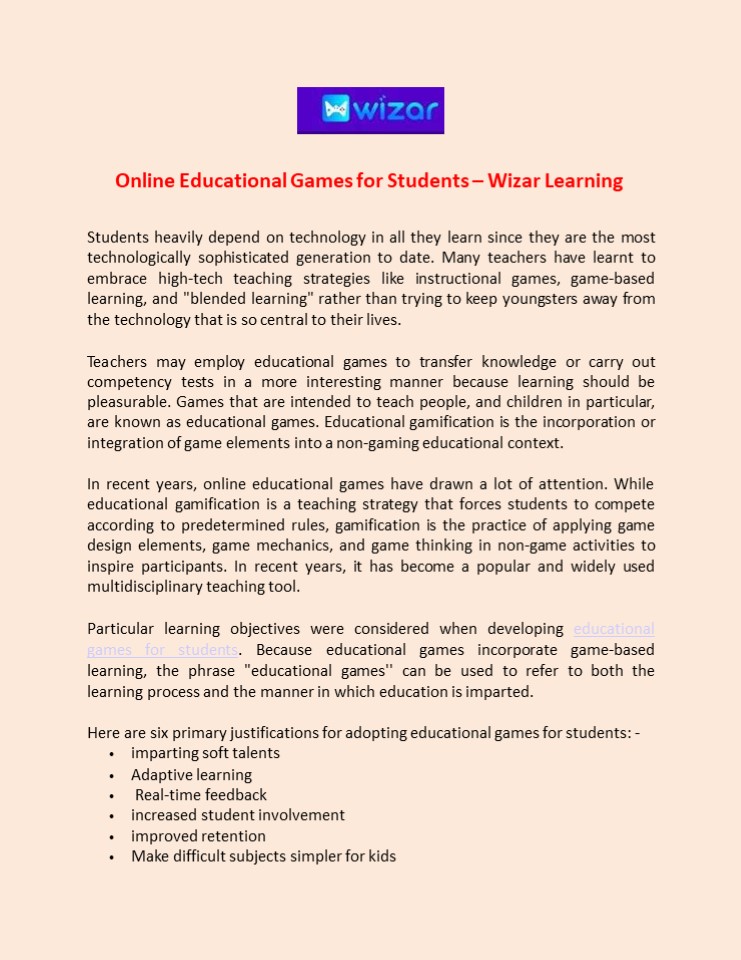Online Educational Games for Students – Wizar Learning - PowerPoint PPT Presentation
Title:
Online Educational Games for Students – Wizar Learning
Description:
Particular learning objectives were considered when developing educational games for students. – PowerPoint PPT presentation
Number of Views:2
Title: Online Educational Games for Students – Wizar Learning
1
- Online Educational Games for Students Wizar
Learning - Students heavily depend on technology in all they
learn since they are the most technologically
sophisticated generation to date. Many teachers
have learnt to embrace high-tech teaching
strategies like instructional games, game-based
learning, and "blended learning" rather than
trying to keep youngsters away from the
technology that is so central to their lives. - Teachers may employ educational games to transfer
knowledge or carry out competency tests in a more
interesting manner because learning should be
pleasurable. Games that are intended to teach
people, and children in particular, are known as
educational games. Educational gamification is
the incorporation or integration of game elements
into a non-gaming educational context. - In recent years, online educational games have
drawn a lot of attention. While educational
gamification is a teaching strategy that forces
students to compete according to predetermined
rules, gamification is the practice of applying
game design elements, game mechanics, and game
thinking in non-game activities to inspire
participants. In recent years, it has become a
popular and widely used multidisciplinary
teaching tool. - Particular learning objectives were considered
when developing educational games for students.
Because educational games incorporate
game-based learning, the phrase "educational
games'' can be used to refer to both the learning
process and the manner in which education is
imparted. - Here are six primary justifications for adopting
educational games for students - - imparting soft talents
- Adaptive learning
- Real-time feedback
- increased student involvement
- improved retention
- Make difficult subjects simpler for kids
2
The benefits of playing online educational games
for students include, but are not limited to,
allowing them to learn in a multisensory,
dynamic, and exploratory setting. Learners can
utilize these instructional games specifically
for experimental learning to hone their
problem-solving and decision-making abilities in
a dynamic learning environment. The game's theme,
the question's structure, the teaching methods,
and the incentive for participation all have an
impact on how well students learn. Additionally,
utilizing mobile devices to play online
educational games is more common than using PCs
and tablets. In conclusion, instructional games
are growing in popularity as educational
technology advances.































